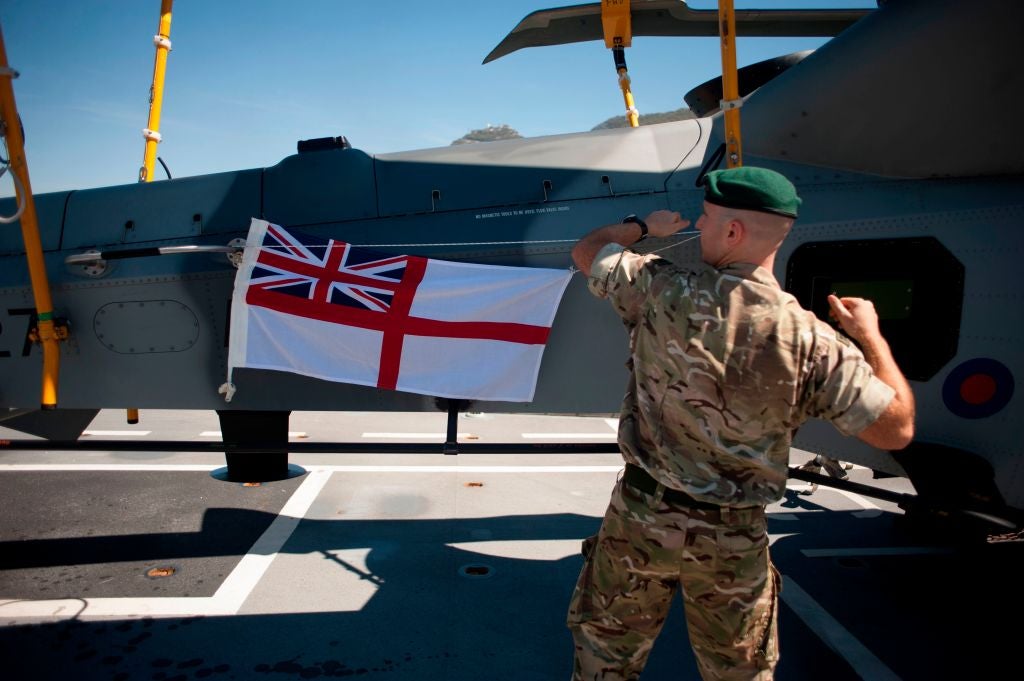Air Chief Marshal Mike Wigston: We have a once in a generation opportunity to modernise the UK armed forces
The UK armed forces must be ready to understand, decide and then act faster, with even greater precision, and in more places around the world than we do today


Your support helps us to tell the story
From reproductive rights to climate change to Big Tech, The Independent is on the ground when the story is developing. Whether it's investigating the financials of Elon Musk's pro-Trump PAC or producing our latest documentary, 'The A Word', which shines a light on the American women fighting for reproductive rights, we know how important it is to parse out the facts from the messaging.
At such a critical moment in US history, we need reporters on the ground. Your donation allows us to keep sending journalists to speak to both sides of the story.
The Independent is trusted by Americans across the entire political spectrum. And unlike many other quality news outlets, we choose not to lock Americans out of our reporting and analysis with paywalls. We believe quality journalism should be available to everyone, paid for by those who can afford it.
Your support makes all the difference.Announced last week by the prime minister, the Integrated Review of security, defence, development and foreign policy sets a vision for Global Britain in a more competitive age.
The secretary of state for defence describes it as the biggest shift in UK defence policy since the end of the Cold War. My fellow service chiefs and I recognise this as a once-in-a-generation opportunity to modernise the UK armed forces, boosted by a £24bn uplift in funding over the next four years.
The threats we face are increasingly sophisticated, with new combat aircraft, missiles and stealth technology challenging our air superiority. Space is now a contested warfighting domain. In that challenging future environment, the royal air force must do more; we must make a leading contribution to the UK’s strategic place in the world, while continuing to protect our skies and space.
First and foremost, the royal air force of the future must be able to defend the UK in the face of fast-evolving air and cruise missile threats, so we need to start work now on what will replace our Typhoon fighters from the late 2030s. That is why the development of the Tempest jet-fighter announced by the prime minister is of strategic importance to the nation, and why we’ll invest more than £2bn in the programme over the next four years.
We’re taking a revolutionary approach to the future, looking at a game-changing mix of swarming drones, and mixed formations of uncrewed and next-generation piloted aircraft like Tempest that will transform air combat in a way not seen since the advent of the jet age; and it will start to happen this decade.
Over 300 UK companies are already working on the Tempest programme, employing thousands of our brightest aerospace engineers across the UK, and offering 2,500 new apprenticeships over the next five years. We are one of only a handful of countries that has an aerospace industry able to design and build cutting-edge fighter aircraft. Our investment in Tempest sends a clear message to the 46,000 combat aerospace workers in the UK: your skills are a vital national asset.
The technology being developed for Tempest is truly ground-breaking. Rolls-Royce achieved a world first by embedding an electrical starter generator in the main body of a military aircraft engine. BAE Systems has already designed a “factory of the future” in Lancashire, equipped with revolutionary technologies; and earlier this year the RAF awarded a £30m contract to develop the UK’s first ever fleet of uncrewed fighter aircraft in Belfast.
You cannot have prosperity without security and you cannot have security without prosperity. The RAF has a unique relationship with our world-class aerospace and tech industries. I want to take that to a new level, building on our established partnerships but also harnessing the innovation and agility of the UK’s small and medium enterprises and the cutting-edge technologies they create.
The Defence and Security Industrial Strategy, launched today, will be the basis for that new level of partnership with industry. This is about working with a world-class industry that gives us real clout on the global stage, opening doors to collaboration with trusted allies and partners, such as Sweden and Italy.
Read more:
The UK secured 16 per cent of the global defence equipment market in 2019, valued at £11bn and second only to the US in terms of defence exports. Around 90 per cent of that was military aerospace. Our sovereign aerospace industry underpins our national security and prosperity, and it is as important today as it has ever been.
In the future operating environment, the UK armed forces must be ready to understand, decide and then act faster, with even greater precision, and in more places around the world than we do today. I am clear that the RAF must lead the way in that, innovating relentlessly at the cutting edge of technology to protect the UK’s sovereignty, prosperity and security into the future.
The Integrated Review gives us that mandate to modernise. Through Tempest and projects like it, we are taking a world-leading approach alongside the UK aerospace industry, creating highly skilled jobs across the nation, collaborating with our defence and security partners around the world, and ensuring the future defence of our skies and space.
Air Chief Marshal Mike Wigston CBE ADC is the chief of the air staff, in command of the royal air force
Join our commenting forum
Join thought-provoking conversations, follow other Independent readers and see their replies
Comments